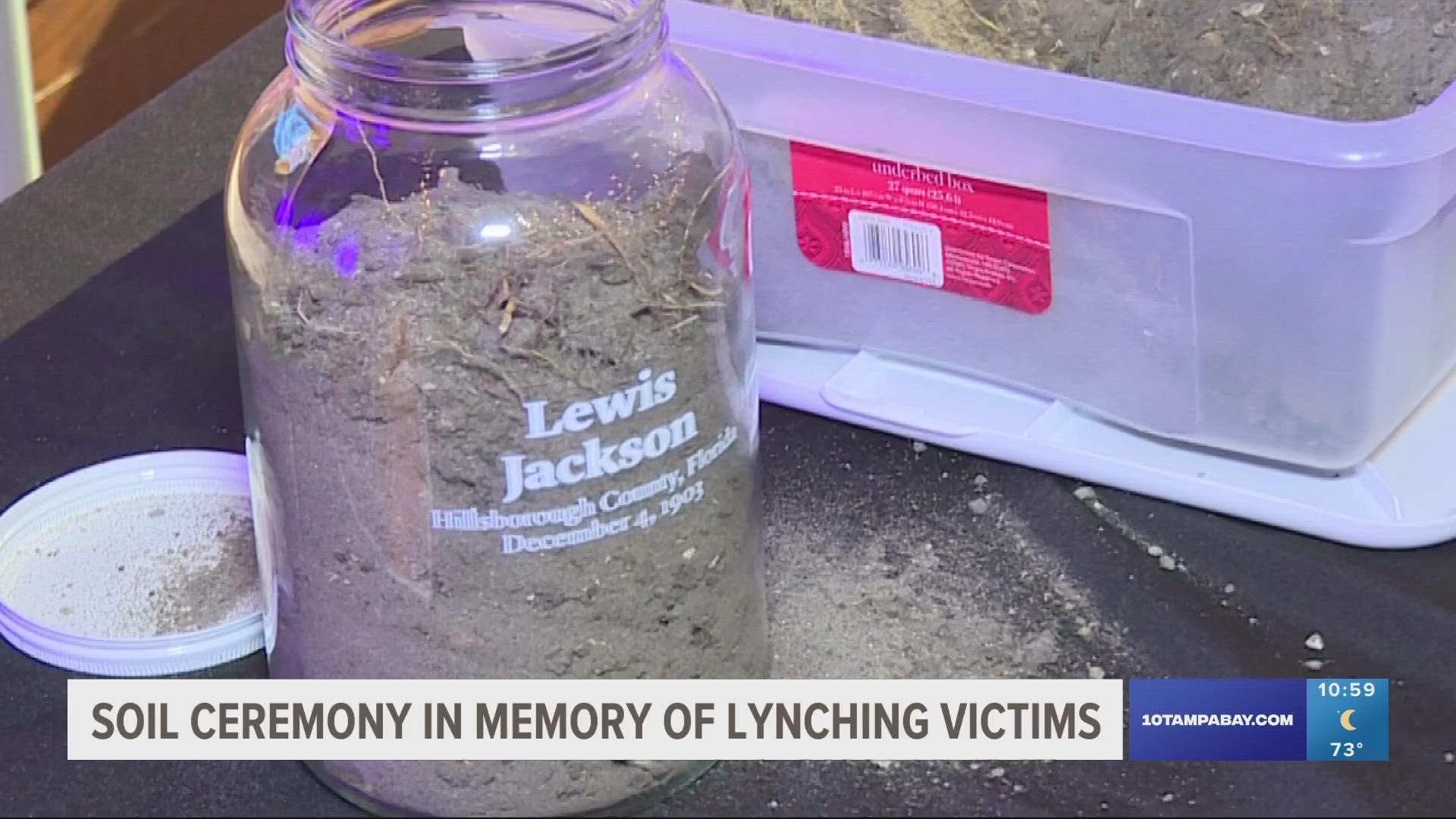TAMPA, Fla. — Members of the community gathered at the Portico in Tampa to honor a black man who had been lynched in Tampa near 5th Street in 1903. His name was Lewis Jackson.
“He was a civilian worker on the army post here in the area. And he was accused of a horrible crime of which he was totally cleared,” said Chalette Davis, who runs events for Portico.
Despite his innocence, Jackson was one of at least five men who were lynched by mobs between 1892 and 1934.
"This was a terrible example of the community taking the law into their own hands," said Davis.
One by one community members filled a jar of soil, taken from the very spot where the lynching happened.
"We have a great capacity for good as humans, but we also have a great capacity for not. And so telling these stories, owning these stories, gives us an opportunity to move forward together,” said Justin LaRosa, minister at Portico.
Tampa city council member Luis Viera says while some want to ignore Florida's history of racial violence, we need to learn from it.
“We have got to confront and be aware of our painful and acute history as Americans on a local level when it comes to these traumatic incidents,” he said.
The soil ceremony comes as Tampa unveiled a new way to understand and experience the contributions of black Americans on Wednesday, with a Soulwalk spanning 46 miles and 100 stops.
"The soul walk represents a city that honors its history, a city that is not afraid to confront its challenges of the past, a city that highlights the black voice," said Sherri Brown with Visit Tampa Bay.
Those who took part in the soil ceremony say it’s important to bring these stories to light, and keep the memory of those who were lynched, alive.
“We forget, and if we forget then we’re doomed to repeat,” Brown said.
Members of the church along with the Equal Justice Initiative will go on a journey to the National Memorial for Peace and Justice in Montgomery, Alabama to place the soil alongside others who have come before.

